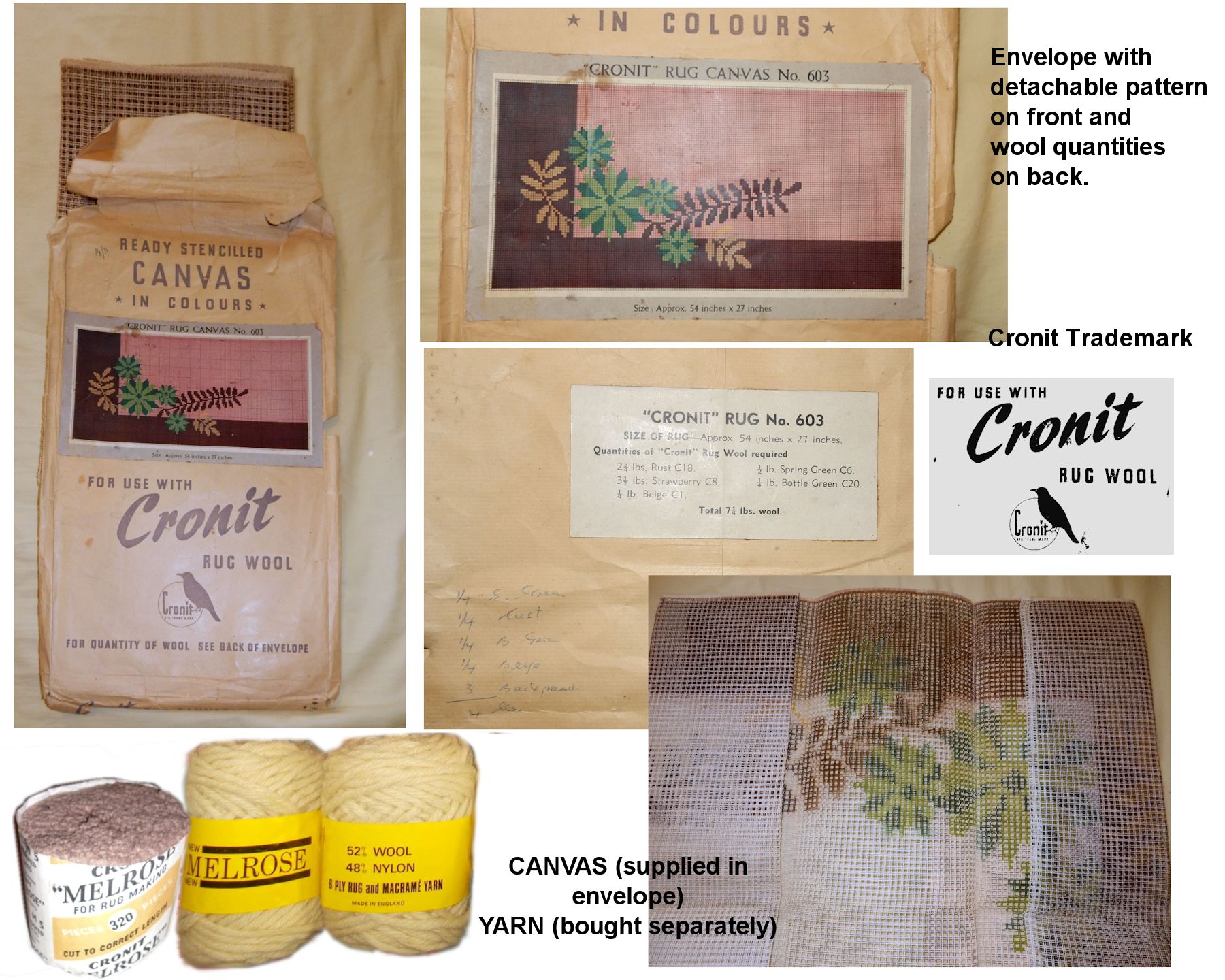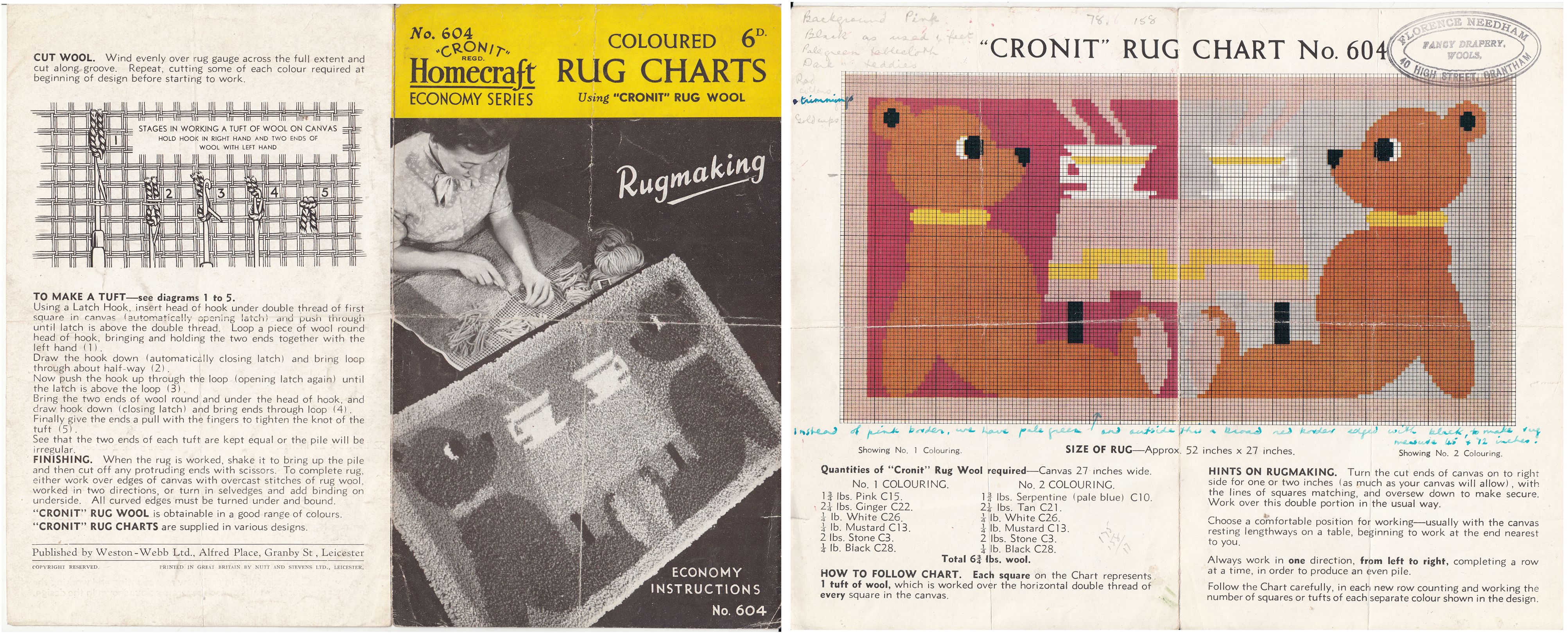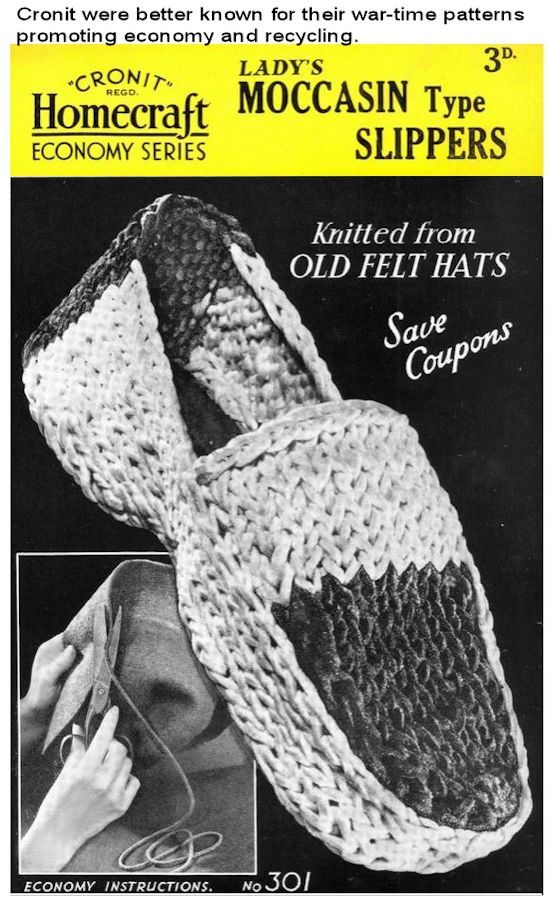
RUG-MAKING SUPPLIES - CRONIT
Cronit seems mainly to have mainly produced crochet patterns and yarns, including rayon crochet yarn and most of the patterns I found are their 1940s "Homecraft Economy Series." These emphasise how recycling yarn and fabric saves clothing coupons. Cronit also produced stencilled canvases. The one design I have found was a 1930s/40s deco style. The unused stencilled canvas is in a large envelope. On the front of the envelope is a detachable charted version of the design (so you could make additional rugs) and on the back is a list of colours and quantities of wool required (by weight). The original yarn would have been Cronit Melrose wool (the envelope refers to "wool" rather than "yarn"). "New Cronit Melrose" yarn (6 ply 52% wool/48% nylon wool yarn) sometimes turns up in cut packs or skeins/balls. The skeins and balls were labelled as "also suitable for macrame," which suggests it dates to the 1960s/early 70s. The cut packs contained 160/320 pieces.


Below is an example of their wartime/post-war (1940s) crochet patterns showing how to recycle old felt hats into hardwearing moccasin-style slippers.

It's not easy to find out about the company behind the "Cronit" name. The last reference to a Cronit trademark is Trademark 692233 covering complete articles of clothing was filed by Weston-Webb Ltd in September 1950 and is now archived. The only thing I know for certain is that Weston-Webb Ltd was founded in 1936 and taken over by Readicut in 1989.
Following the Weston-Webb name, I found a yarn company whose Chairman was Weston Fulford Marrriot Weston-Webb (W F M) Weston-Webb. This was Holland & Webb Ltd, Yarn Manufacturers, Weekday Cross, Nottingham. It was founded in 1824 by Mr Jackson who was later joined by Mr C A Holland. When Mr Jackson retired, Mr. Holland formed a partnership with Mr W F M Webb under the name "Holland & Webb." In 1901 the Company was registered and the Board of Direcotrs comprised W F M Weston-Webb (Chairman), Frank Taylor, R H Perkins, C E Burton, and R L Mackley (Directors). By 1924 it had become one of the most important yarn houses in the country, with branches at Leicester and Glasgow, and international trade. The company produced yarns for every purpose but was best known for cotton yarns and mercerised cotton (meaning it would have supplied the lace-making industry in the Nottingham area). It also supplied woollen yarns - Botany, Worsted and Union - in any ply suitable for knitting, weaving etc. W F M Weston-Webb had a son called Ronald Beresford Weston-Webb (born November 1899) who was also a yarn merchant for a while. The business was evidently very succcessful as W F M Weston-Webb leaves a substantial fortune when he dies in 1937 (the year following the founding of Weston-Webb Ltd).

You are visitor number: